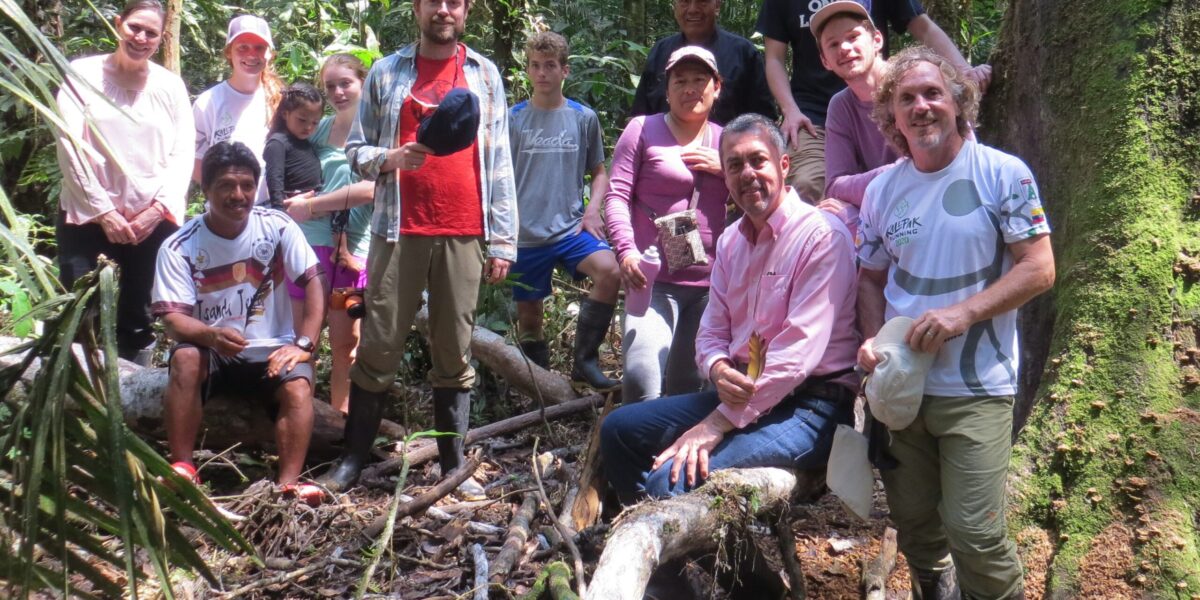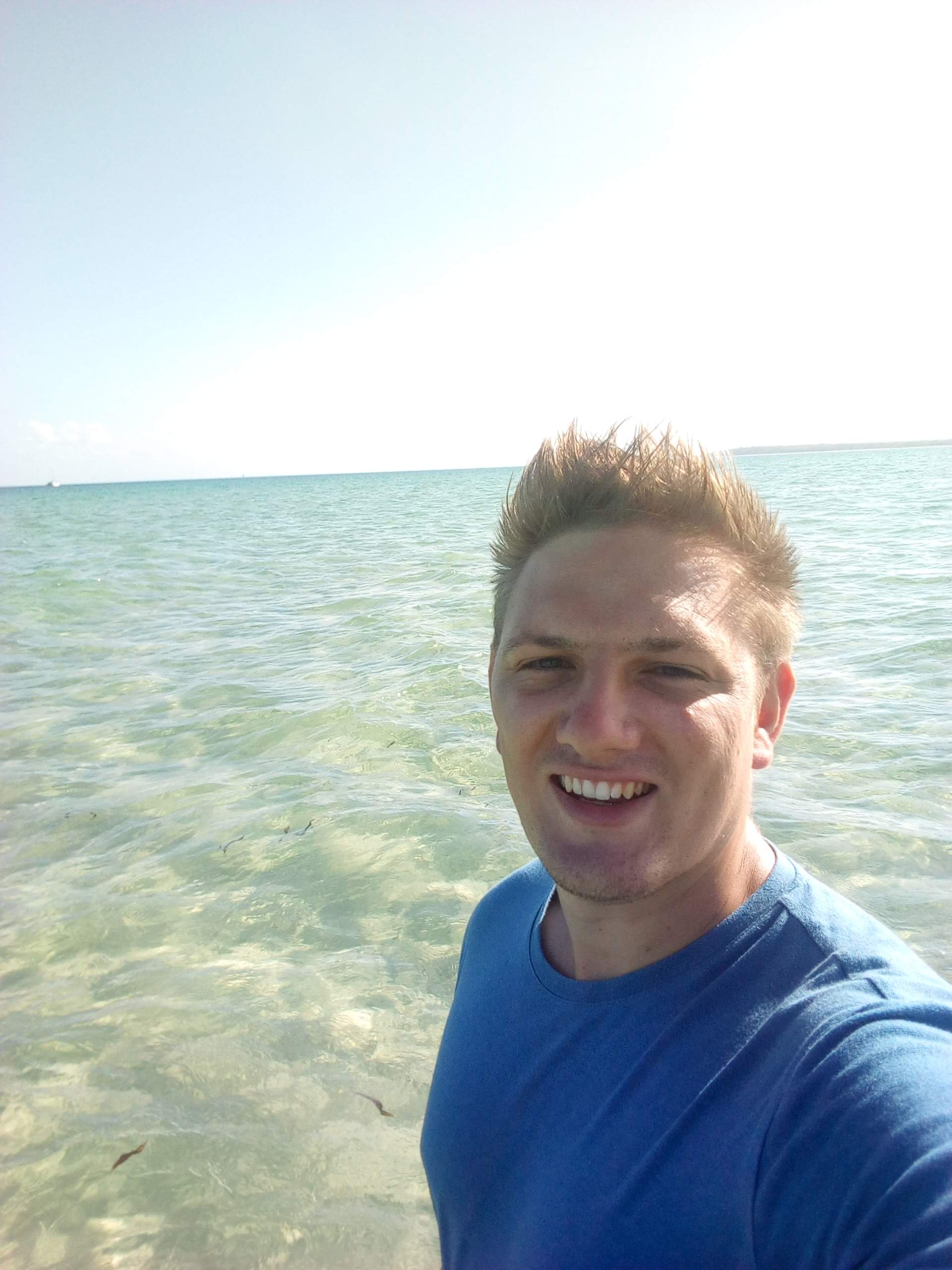In the midst of lockdowns, social distancing, and closed borders, COVID-19 reminds us how interconnected our world is and how our lives are unavoidably intertwined. While there are challenges that come with living in such a world, this interconnection enriches our lives socially, economically and spiritually — a lesson I learned while spending a week with the Ross Richer family in the Amazonian community of Zábalo last month.
In early March, I had the privilege of traveling to Ecuador as part of a delegation to celebrate 30 years of partnership in Ecuador with Mennonites from North America and Colombia. Our delegation was invited to join Jane and Jerrell Ross Richer, who serve with Mennonite Mission Network, in a visit to the indigenous Cofán community of Zábalo where they live and work.
Zábalo lies in Ecuador’s far northeast. But one can’t type Zábalo into Google Maps and get directions. Our journey took two full days through a country boasting the greatest biodiversity on the planet.
As we descended nearly 7,500 feet from Quito, we watched the landscape transform dramatically. Towering snowcapped volcanos on Quito’s horizon turned into valleys of abundant vegetable and flower farms. As we continued, waterfalls crashed into ravines below us, and lush cattle pasture stretched out for miles until finally plunging into the expansive Amazon rain forest.
On our second day, we wove through endless African palm oil plantations before the dirt road finally ran straight into the Aguarico River, a tributary of the Amazon. From there we hopped on a long, narrow motorized canoe, winding through the tangled Amazon rain forest, ceiba trees towering above us and pink dolphins cresting at our side.
Deep in the rain forest, one could be forgiven for questioning how truly connected Cofán are to the outside world. Our lives today, however, are more interconnected than ever. A population numbering only about 1,600, Cofán are stewards of more than one million acres of rain forest. They help protect the lungs of the planet. As North Americans, we put huge pressure on this massive responsibility. Our culture’s voracious appetite for fuel has driven oil companies deeper and deeper into the Amazon rain forest. Against incredible odds, the Cofán have been able to ward off further economic colonization of their ancestral land.
In our short time in Zábalo, we witnessed the Cofán people’s deep connection to the natural world and intimate understanding of their environment. We were taught how to bathe by never lifting our feet more than a centimeter off the river floor. This protected us from stepping on poisonous sting rays. They showed us that the best fishing tributaries were the most dangerous for swimming due to the threat of 40-foot anacondas, 15-foot sting rays, and electric eels. When they invited us to wakeboard Amazon style —with a motorized canoe, wooden plank, rope, and a stick to grasp — they assured us the piranhas were nothing to fear so long as we didn’t bleed too much.
Jacob Yoder, of rural Wellman, Iowa, traipses through the Amazonian rain forest with other members of the delegation who visited Jane and Jerrell Ross Richer and their family who serve with Mennonite Mission Network in Zabalo, Ecuador. Photo by LInda Shelly.
When we returned to Zábalo for dinner, our hosts served us portions of a six-foot fish called paichi. After spending these few days with our Cofán friends, living so immersed in the natural world, so dependent on its abundance, it was easy to understand how Cofán cosmology might make little distinction between the spirit world and the physical world.
This is the world the Ross Richers live in six months out of the year as part of their two-way mission. They have totally immersed themselves in it. After nearly six years living in Zábalo, their kids speak the Cofán language. Their son joins the young men of the community on hunting expeditions, while their three daughters learn to master the preparation of a staple drink called chukula, a sort of roughly mashed warm plantain smoothie.
As they’ve poured themselves into Zábalo, Jane and Jerrell said they have been deeply impacted by the spirituality of their friends and neighbors. Our conversations with Hiter and Mimi, the two brothers leading the church in Zábalo, revealed a worldview of spirits, curses, dreams, and divine healing — far more like that of the Bible than our own culture. This cultural reference has become an incredible source of inspiration and learning for Jane and Jerrell, giving them new eyes with which to read the Bible.
This model of mission — to be of service, and to be hungry to experience, learn, and grow in the ways of the people you are with — is a way of living in an interconnected world I know will enrich my life and my understanding of God. I have my Cofán friends, and the Ross Richers who have brought us together, to thank for this.









